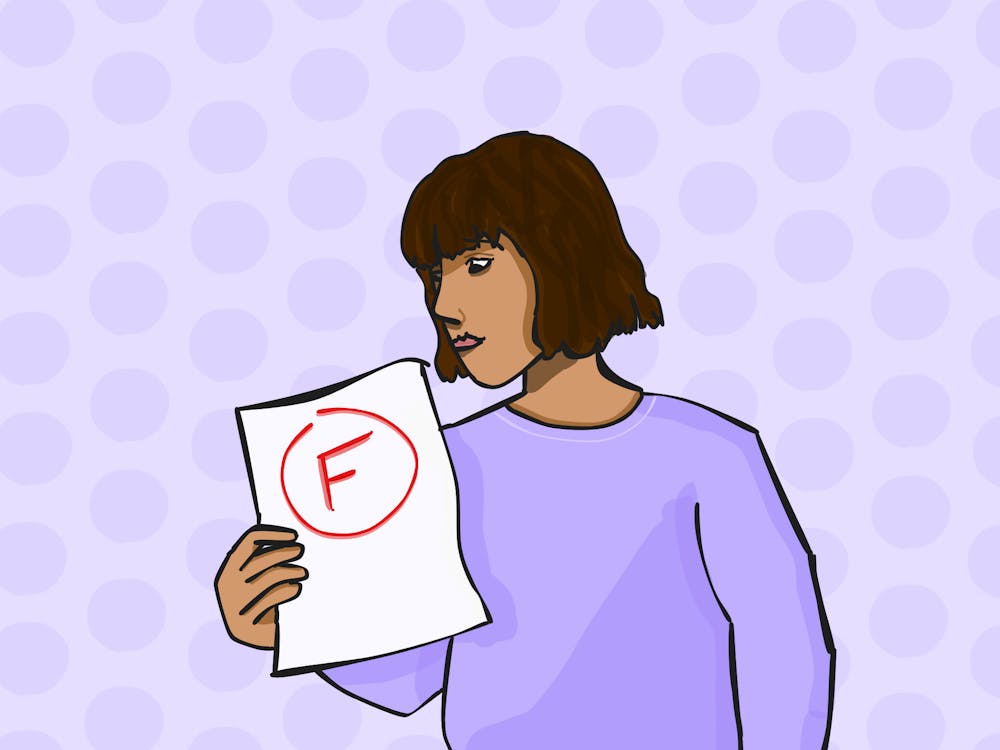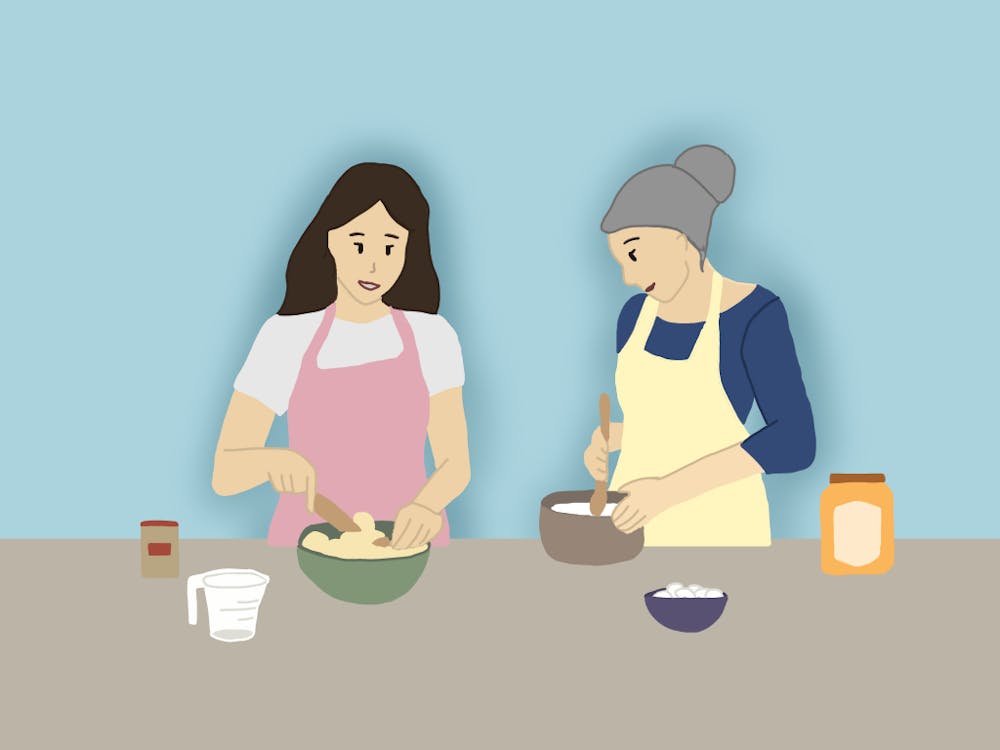With the Foxfield Races right around the corner, University students tend to catch some form of horse racing fever this time of year, whether it be marveling at the athleticism of the horses or simply shooting a passing glance at the blur of movement on the other side of the cooler.
Wouldn't it be nice to make Foxfield last a little longer? If you're going to be anywhere near New Kent, Va. this summer, you can.
Colonial Downs, Virginia's largest racetrack, is nestled just off Interstate 64, about 100 miles east of Charlottesville. The racing isn't exactly like what you see at Foxfield, but it's close enough to get you through the summer.
Most of the races are on the flat, which means horses do not jump obstacles like they do at Foxfield. Even though Colonial Downs has hosted the Strawberry Hill Races for the past few years, which are Richmond's equivalent of Foxfield, on the whole, races at Colonial Downs are more along the lines of the Kentucky Derby.
The national thoroughbred horse racing season generally kicks off in early March and ends around October. Colonial Downs has a relatively short thoroughbred meet, with races running five days a week -- usually not on Wednesdays and Thursdays -- from June 9 to Aug. 6. Standardbred racing, in which horses trot or pace instead of gallop and pull sulkies behind them, occurs from Sept. 12 to Nov. 5, but we'll concentrate on the Thoroughbred meet.
Why Colonial Downs' season is so short compared to that of other tracks boils down to money. Other racetracks in the region, such as Charles Town in West Virginia, bring in more revenue and can sustain bigger prizes over a longer amount of time.
Charles Town's secret? Slot machines. The major source of racetrack revenue comes from betting, and anytime a track can add another form of gambling, its revenue can skyrocket.
Virginia and Maryland legislatures have been seen more debates about the addition of slot machines, or some other form of gambling, to racetracks to keep up with other states, such as West Virginia and Delaware, whose racetracks already feature slots.
A bill was introduced in both the 2007 and 2008 meetings of the General Assembly to allow historical racing games as a form of supplemental gambling at Colonial Downs, but was defeated both times. These machines allow gamblers to bet on previously recorded horse races. Programmed with abound 10,000 real horse races, gamblers can bet between a nickel and $5 on a horse. Gamblers can either watch the whole race or the last few moments on the screen, and if the gambler's chosen horse wins, he also wins a payout.
Colonial Downs has good reason to choose a shorter season with higher purses than the alternative. As it stands, the racetrack boasts one of the best turf, or grass, tracks on the East Coast and is home to two of the four races of the Grand Slam of Grass, the $750,000 Colonial Turf Cup and the $1 million Virginia Derby.
The racetrack's biggest day of the year by far is Virginia Derby day, which is July 19 this year. Over the years, the Virginia Derby, and its lucrative purse, has attracted horses that have run in the Kentucky Derby, as well as Hall of Fame jockeys and trainers.
Last year, the Virginia Derby also gained a bit more recognition after CBS agreed to nationally televise the race. The deal is still on for this year, so if you can't make it to Colonial Downs, you can always watch from home.
Watching from an air-conditioned room may not be a bad idea. With a date traditionally in mid-July, the Virginia Derby is usually a day full of heat, humidity and sweat.
But Colonial Downs can offer you air conditioning, too. Although Virginia Derby tickets start at $5 for general admission, covered seating is available for $10, and the track offers tables for $40 in the Jockey Club Lounge, an indoor restaurant. The extra money is definitely worth it.
The Virginia Derby isn't as wild as Foxfield -- you can't carry in your own alcohol, for one -- but it's still a great time. And you can always console yourself by engaging in one behavior not institutionalized at Foxfield -- betting.
Even though the Virginia legislature won't allow slot machines or other gambling at racetracks, you can always bet on the races as long as you're over 18 years old. Here's a quick rundown of how to place a bet so you can get started as soon as you get to the track.
How much money you win depends on the odds of the horse. The lower the odds, the more likely bettors think the horse will run well and the less money you'll make on that horse. So, if you bet on a horse with 2 to 1 odds, you would win $2 for every $1 you bet if that horse wins.
You can make a variety of bets at the track, but the six most popular are win, place, show, exacta, trifecta and superfecta.
If you want to just bet on one horse, choose from the first three betting options. If you bet a horse to win, you only collect money if that horse wins; however, if you bet a horse to place, then you collect money whether that horse places first or second, and if you bet a horse to show, you receive a payout if he runs first, second or third.
Even though it seems like betting a horse to show every time sounds like the best option, you win less money if you make this type of bet and he ends up winning.
Betting a horse to win, place or show rarely pays out more than $15, so if you want a more complicated bet that has the potential for a larger win, venture into the exacta, trifecta or superfecta categories.
For these three bets, you pick more than one horse. For an exacta, you choose the horses that will come in first and second. For a trifecta, you choose the top three horses and for a superfecta, you choose the top four. Winning trifectas can yield hundreds, and some superfectas reach tens of thousands of dollars.
But these bets also cost more to make, especially if you box them, which means the horses you choose can come in any order. The minimum bet you can place is $2 per horse, so the least expensive exacta box is $4 because you are betting on two horses, a trifecta box is $12 and a superfecta box $24. Many tracks now offer 10-cent superfectas, which cost $2.40 but similarly diminish the payout by the same increment.
So how do you choose the horses you place into the bets? Everyone has a different way. Some people pick by names, others choose the horses with the shortest, or longest, odds, and still others simply follow superstitions like gray horses always win on the turf and the horse who is spunkiest before the race will win.
At Colonial Downs, you can get a close-up inspection of the horses before the betting windows close which, incidentally, is one minute before the race begins. The saddling area, called the paddock, is located just next to the track and is an easy walk from all of the general admission seats.
If statistics is more your thing, buy a program of the day's races. The program lists a horse's parents, his jockey, trainer and owner, his earnings and his recent race history. And in the front of every program are instructions on how to read it and how to bet.
When the middle of summer rolls around and you're sick of the beach, your job or your internship, take a trip over to Colonial Downs to enjoy the afternoon and maybe try your hand at a little betting. Just don't blame me when you run out of beginner's luck.






